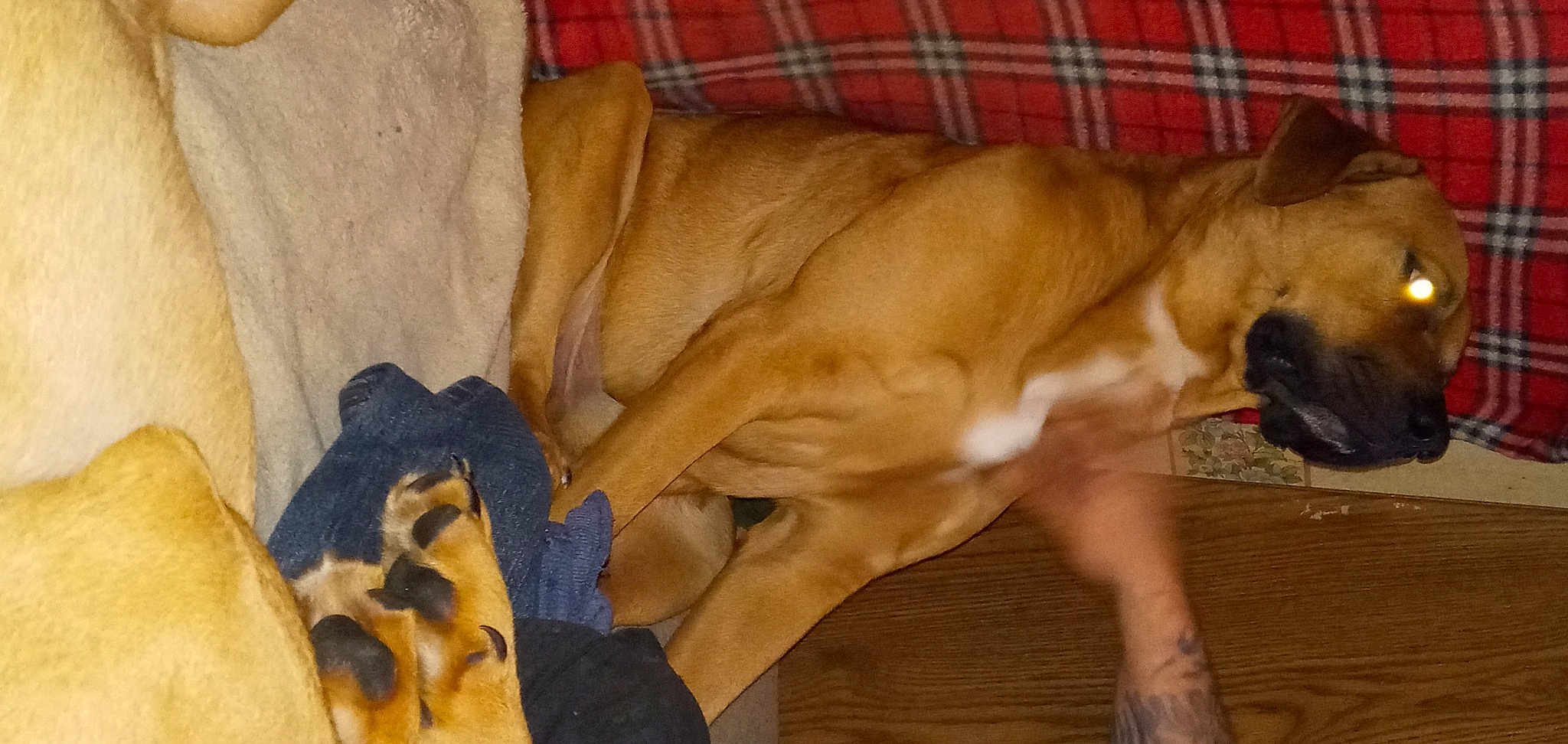
"The Tosa Inu, also known as the Japanese Mastiff, is a rare and powerful breed revered for its dignified and stoic nature, deeply embedded in Japanese culture and history."
Personality and Behavior of the Tosa
Tosas are renowned for their calm and composed demeanor. Although they have a strong and imposing presence, they are often surprisingly gentle and affectionate with their families. This breed is intensely loyal and protective, making them excellent watchdogs. Tosas tend to be reserved with strangers but showcase boundless devotion and friendliness to their owners and those they know well. Their serene temperament makes them a reliable and tolerant companion, especially if they are well-socialized from a young age.
Due to their origins as fighting dogs, Tosas possess a certain level of independence and stubbornness. They require an experienced owner who can establish clear rules and provide consistent training. Despite their size and strength, aggression is not inherent to the breed when they are provided with proper training and socialization. A well-raised Tosa is a confidant and calm guardian, mindful of their surroundings but rarely aggressive without cause.
Importantly, Tosas are known for their patience and tolerance, particularly around children if introduced appropriately. However, given their size and power, interactions with smaller kids should always be monitored to prevent accidental injuries during playtime. This breed thrives on companionship and should not be left alone for extended periods.
In Japan, the Tosa is often referred to as "sumo wrestler" among dogs, a nod to its impressive strength, careful balance, and innate sense of honor.
Meanings, History, and Origins of the name Tosa
The Tosa Inu, sometimes simply called Tosa, originates from the Tosa region on the Shikoku island in Japan. The name "Tosa" is derived from this locale, indicating the breed's rich geographic and cultural history. The term "Inu" translates to "dog" in Japanese, hence Tosa Inu combines regional pride and the essence of the animal itself.
This breed was initially developed in the mid-19th century to serve as a fighting dog, combining native Japanese breeds with Western ones, including Mastiffs, Bulldogs, and Great Danes, to achieve a perfect balance of power, endurance, and fearlessness. Over time, the Tosa evolved not just as a combatant, but also as a symbol of dignity and strength.
In Japanese culture, the Tosa is considered more than just a dog; it's a treasure embodying the country’s spirit. They were traditionally bred to be quiet and resilient during combat, traits that are still noted in their modern-day personalities. Despite their historical use in the dogfighting arena, contemporary Tosas are primarily prized as loyal companions and guardians.
Popularity of the Tosa
Globally, Tosas are not as widespread as other breeds, primarily due to their size and the specific training they require. They are beloved by a niche group of enthusiasts who appreciate their unique history and characteristics. Tosas are more commonly found in their native Japan, where they are regarded with deep respect.
In English-speaking countries, the Tosa is much less common, partially due to stringent ownership laws and restrictions in some regions. For instance, in the UK and parts of the US, ownership can require special permits due to their historical background as fighting dogs. However, those who do own them in these regions often form tight-knit communities that celebrate the breed’s unique qualities.
Outside of Japan, the Tosa finds a loyal following in selected European countries and parts of Asia. Enthusiasts in these areas appreciate the breed for its robustness, loyalty, and the calm nobility it brings to a household. Shows and competitions featuring Tosas remain rare but cherished events among aficionados.
Health and Care of the Tosa
Tosas are a robust breed but are not without their health challenges. Common health concerns include hip dysplasia, elbow dysplasia, and certain heart conditions, all of which are prevalent among large breeds. Regular veterinary care and health screenings are essential to manage these risks and ensure a long, healthy life for a Tosa.
Diet is another critical aspect of caring for a Tosa. Due to their size, they require high-quality, well-balanced nutrition to support their energy levels and overall health. It’s important to monitor their diet closely to avoid obesity, which can exacerbate joint problems and other health issues. Owners should provide a mix of protein, healthy fats, and essential vitamins and minerals suited for large breeds.
Regular exercise is vital for a Tosa’s physical and mental well-being. Daily walks, mental stimulation through training, and ample space to move around are necessary to keep this breed happy and healthy. Although they enjoy relaxing around the home, Tosas need consistent activity to maintain their muscular build and prevent boredom.
Training and Education of the Tosa
Training a Tosa requires patience, consistency, and a firm but gentle approach. Early socialization is crucial to ensure they grow up to be well-rounded dogs. Introducing them to various environments, people, and other animals at a young age helps curb any potential aggressive tendencies.
Basic obedience training should start early and be reinforced regularly. This breed responds well to positive reinforcement techniques, such as treats, praise, and play. They do not react favorably to harsh punishment or negative reinforcement, which can lead to behavioral problems. Commands like sit, stay, and recall are essential for controlling their powerful build and ensuring safety in public places.
Given their independent nature, advanced training is beneficial to curb any stubborn streaks. Activities that challenge their intellect and provide physical stimulation, such as agility training or advanced obedience work, can be particularly effective.
Training sessions should be kept short and engaging, as Tosas can become bored with repetitive drills. Establishing yourself as a calm and consistent leader is fundamental to earning their respect and cooperation.
Choosing the right dog depends on your lifestyle, family dynamics, and personal preferences. For those with ample space, time for consistent training, and experience with large breeds, the Tosa provides an unmatched combination of loyalty, protection, and companionship.
Breeds like the Tosa, featured often in movies and literature as symbols of fortitude and loyalty, highlight the timeless connection between humans and dogs. At KingPet, many Tosas participate in our contests, showcasing their charm and unique qualities. Selecting a Tosa for your household can bring immense joy and a profound sense of guardianship, making them an excellent choice for those prepared to meet their needs.











